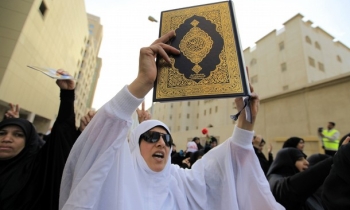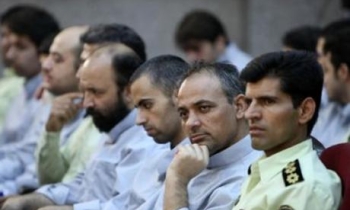US soldiers who killed a Reuters journalist in Iraq acted within military rules, but the Army's probe of the incident was tainted by its failure to preserve evidence, a Pentagon investigation said on Monday.
The Defense Department's inspector general, the Pentagon's watchdog agency, found that U.S. soldiers who fired on a Reuters car in west Baghdad in August 2005, killing Reuters Television soundman Waleed Khaled, reasonably responded to what they thought was a threat.
But the inspector general criticized the Army investigator for losing a critical piece of evidence -- video from a Reuters cameraman in the car that captured events leading up to and including the shooting.
That Army investigator's actions rightfully led Reuters to believe the investigation was not thorough or independent, the inspector general's report said.
"We found that although the (investigating officer) who conducted the Army investigation did not pursue some logical investigative actions, he properly concluded that during an ongoing enemy attack the soldiers thought a video camera and external microphone held out of an indigenous, unmarked vehicle was a rocket propelled grenade," the inspector general said.
"The soldiers reasonably believed that act constituted a threat to United States forces and as such were obligated to act and did so in accordance with the (rules of engagement)."
Reuters said that while it disagreed with the Pentagon's findings, it appreciated the inspector general's recommendation that the U.S. military in Iraq work with media organizations on safety procedures to avoid similar incidents.
"I am never satisfied when a journalist is killed in the course of covering a story," said Reuters Editor-in-Chief David Schlesinger. "I am satisfied that the inspector general took this case seriously and came up with useful and positive recommendations."
Khaled and cameraman Haider Kadhem were inside a Reuters car while Kadhem, in the front passenger seat, filmed the aftermath of an insurgent ambush on Iraqi police.
Soldiers positioned more than 200 yards (meters) away -- the length of two American football fields -- thought they saw someone leaning out of the car with a rocket propelled grenade, according to the U.S. military.
Soldiers fired on the Reuters car, killing Khaled.
No weapons were found in or near the car.
Iraq is the world's most dangerous country for journalists. At least 179 reporters and media assistants have been killed since the U.S.-led invasion in 2003, according to the New York-based Committee to Protect Journalists.









